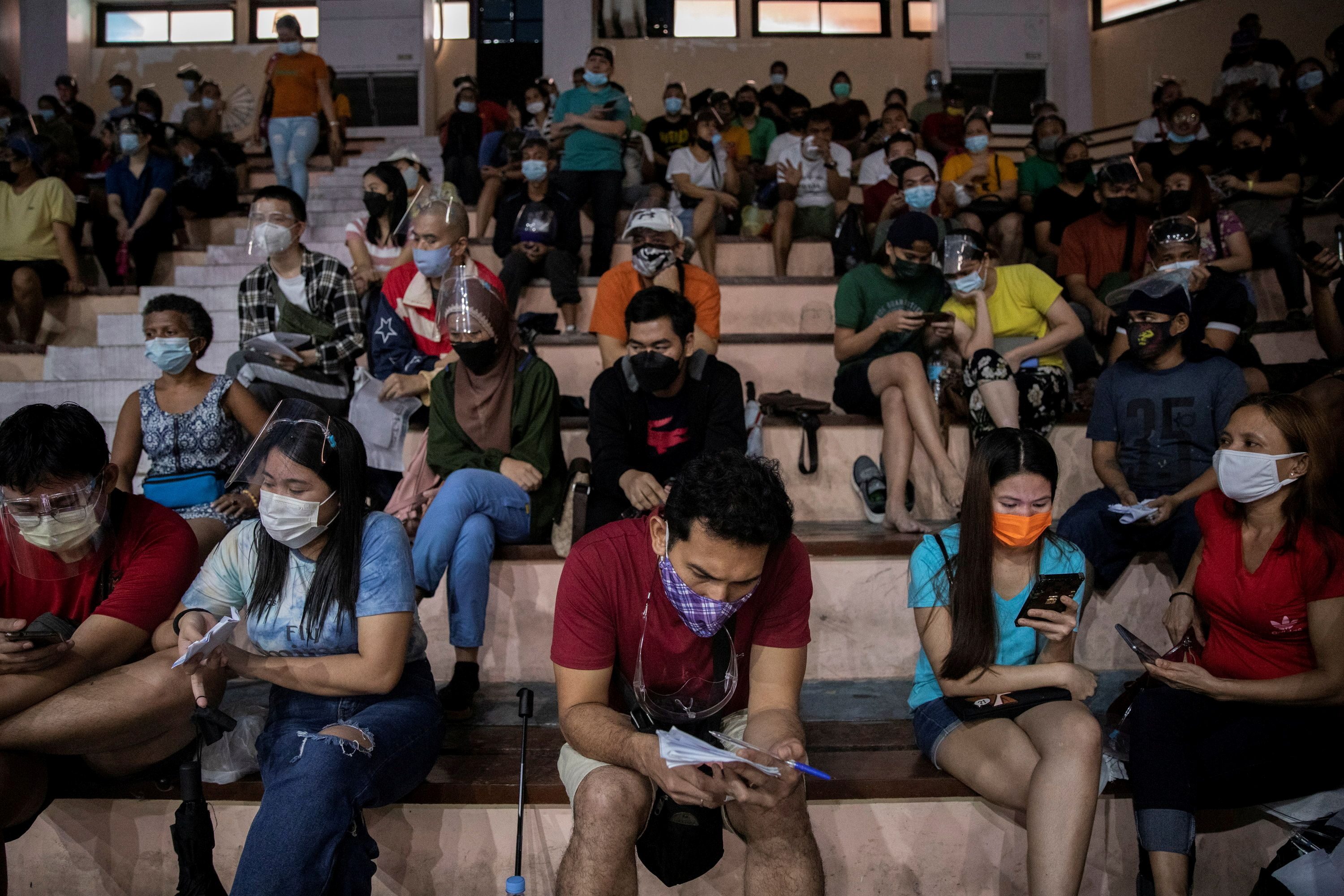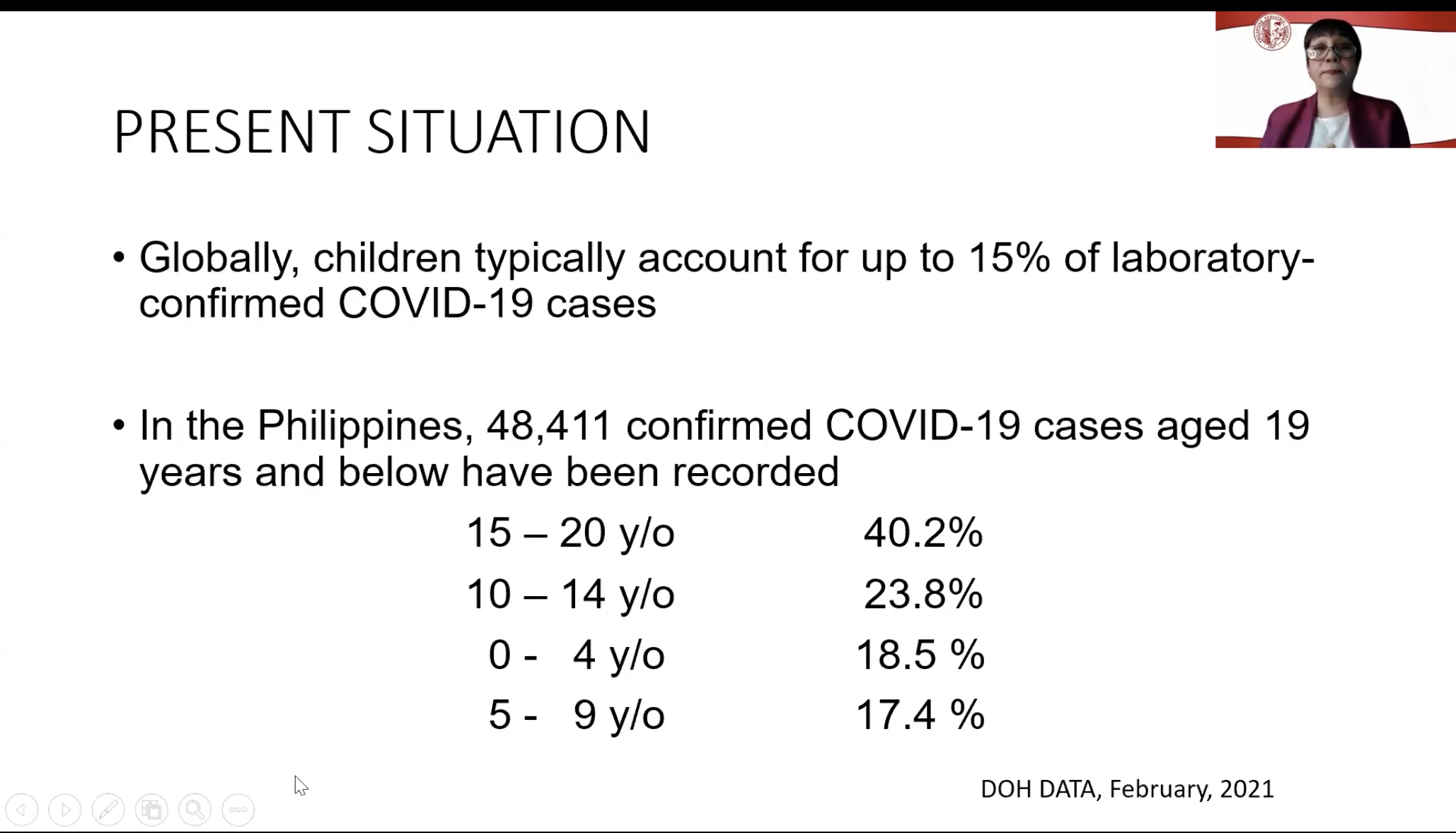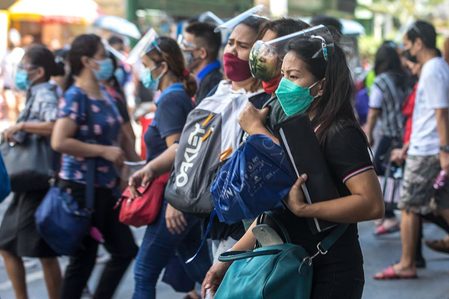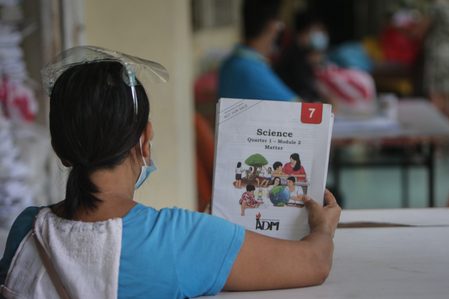SUMMARY
This is AI generated summarization, which may have errors. For context, always refer to the full article.

Pediatricians urged the government to ramp up vaccinations among adults to protect children against COVID-19, as there is growing concern that the highly contagious Delta variant is more fatal for children.
The Philippine Pediatric Society (PPS) and the Pediatric Infectious Disease Society of the Philippines (PIDSP) made this call on Thursday, August 12, in a forum titled COVID-19 in Children.
“What we need to do is for the adults to ramp up coverage. In so doing, the children will also be protected. We need to ramp up the immunization coverage aside from practicing the minimum health standards,” said Dr. Fatima Gimenez, chairperson of the Committee of Immunization of PPS.
Experts said, however, that the effect of the Delta variant on children needs further studies, as symptoms of most Filipino children infected with COVID-19 remain to be mild.
Unlike some other countries, the Philippines is still not keen on vaccinating children due to limited vaccine supplies. The government had said that its vaccination strategy would still prioritize the vulnerable groups.
The PPS and the PIDSP echoed the same position, saying that “vulnerable adult age groups should still be given precedence in the vaccination roll-out.”
The “cocoon” strategy or the vaccination of qualified adult household members would extend protection to children as studies have shown that children are acquiring the virus from adult household members.
“In the context of the Philippine situation wherein there is still no in-person schooling, the best way to protect children against COVID-19 is to vaccinate the adults who take care of them,” said the PPS and the PIDSP in a joint statement.
The Department of Health (DOH) said on Monday, August 9, that there was an overall 59% increase in cases among all age groups during the period of July 13 to 25 compared with July 26 to August 8.
“Among the age groups, the highest increase was observed among the 30-39 age group and lowest among those 80 years old and above during the same period,” the agency said. The age group of 30-39, or the working age group, is among those at risk of infection.
The DOH released the statement to allay fears of parents that children are now at high risk of getting COVID-19 infection.
‘Underreported’ cases among children
PIDSP president Dr. Mary Ann Bunyi said that the country still doesn’t have national data reflecting the true incidence of COVID-19 among Filipino children.
“It is skewed because we don’t routinely test especially the children who are asymptomatic,” Bunyi said.
“In order to improve the landscape of COVID-19 among Filipino children, it will be helpful to capture children with mild respiratory symptoms by testing them for COVID-19 especially if there’s a background of exposure and if he is residing in a high risk transmission community,” she added.
PPS Public Relations Committee chairman Dr. Maria Carmela Kasala shared the same sentiment, saying that “we are not getting the real picture as to the milder versions of COVID-19” among children due to inadequate testing.
“Right now, I feel that we are getting an underreporting here of COVID-19 [among children],” she added.

As of August 11, the government has fully vaccinated 12.1 million individuals or 17% of the target eligible population for vaccination or 11% of the total population.
Why this matters
The issue of whether children should be included in the government’s vaccination program comes as lawmakers and several advocacy groups push for the safe return of students to schools.
Philippine schools had stopped face-to-face classes for over a year due to the COVID-19 pandemic. Classes were done via remote learning, and this distance education strategy will be implemented again next school year.
Distance learning had been widely criticized as the Philippines appeared unprepared for it.
In June, the country approved Pfizer and BioNTech’s COVID-19 vaccine emergency use for adolescents aged 12 to 15. The DOH said, however, that vulnerable populations remain the priority due to the limited supply of vaccines.
The Philippine’ Food and Drug Administration likewise on July 7 said that it started looking into whether Sinovac’s COVID-19 vaccine can be used for children aged 3 to 17. China allowed the use of the Sinovac vaccine among kids in early June, with the company saying the jab successfully triggered an immune response among the age group with only mild adverse reactions reported.

If given approval, this would be a welcome development as the country has a stockpile of Sinovac vaccines.
– Rappler.com
Add a comment
How does this make you feel?


There are no comments yet. Add your comment to start the conversation.